The skill of cooking hard boiled eggs is essential to your cooking repertoire. Especially around Easter time! Eggs are a powerpacked food source (high in protein, low in carbohydrates, full of nutrients!) and hard boiling them makes them fast, easy additions to any snack or meal. But searching the food world for the correct method is completely confusing.
Every hard boiled egg recipe comes with the promise to deliver the best eggs you’ve ever eaten. But they are all different! How can every recipe promise perfect eggs?
The problem is, it depends on what you deem to be the perfect egg! Do you prefer and oozy yolk with a tender white? Do you prefer your egg to have more substance and spring to it? Or does easy peeling trump all other characteristics??? Want easy to peel eggs, read this post. Looking for the best method for cooking your eggs? Read this review of four different cooking methods.
Back to troubleshooting, most people know what they don’t want to happen to their hard boiled eggs. Here are some tips to help you avoid the pitfalls of boiled eggs:
#1. Hard to Peel Eggs
The Solution: Put your eggs in hot water to start. This helps the proteins in the eggs to condense quickly, pulling the egg white away from the membrane.
Age does matter! The fresher the egg, the more likely it is to stick to the peel when boiled. Eggs from the grocery store are usually old enough to use ( But you can use the date on the carton to see the day of the year your eggs were packaged.) If you’re grabbing your eggs fresh from the coop, let them age about two weeks before boiling them.
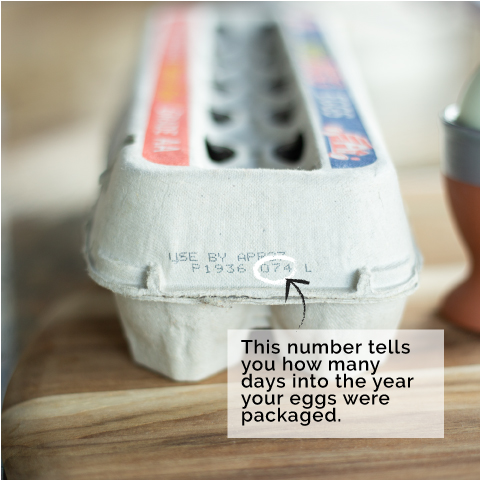
#2. Tough Egg Whites
The Solution: Eggs must be heated gently, and you don’t want to actually boil the eggs while in the water. Simply simmer the eggs or remove from the heat while cooking so they never actually boil.
#3 The Perfectly Cooked Yolk
The Solution: Soft, Medium or Hard. People tend to feel pretty passionate about the texture of their yolks. But we all can agree that a dried out, crumbly yolk is nobody’s friend. Check out this timing chart:
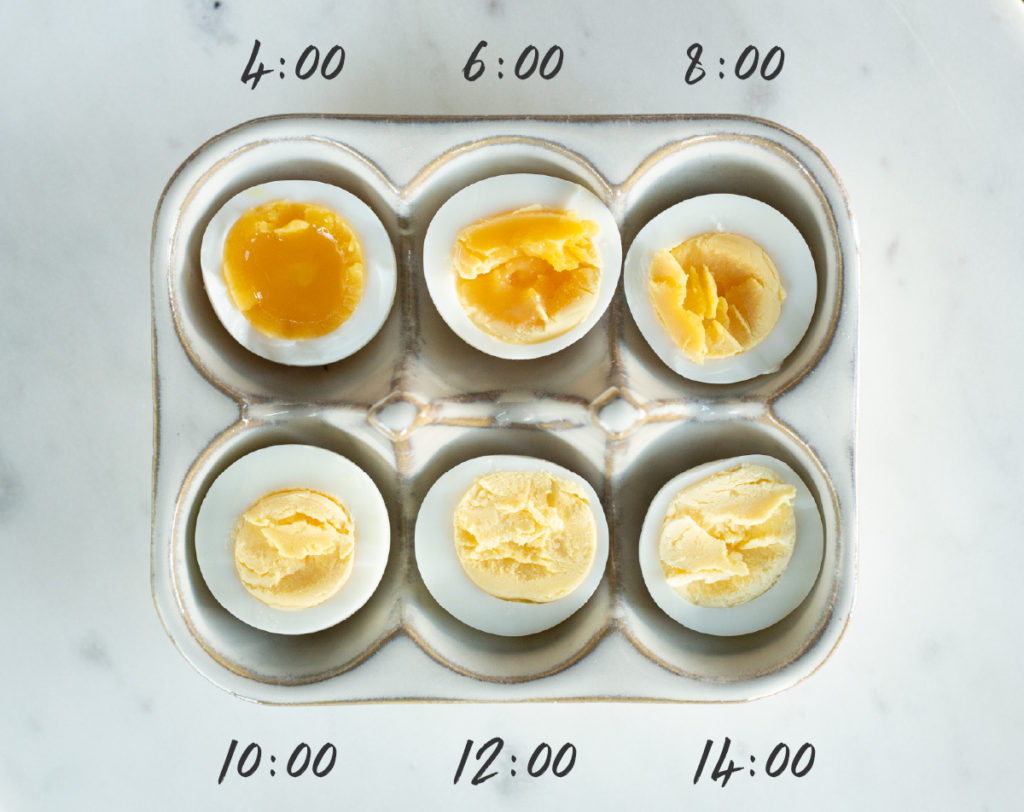
- 4 minutes for very runny soft-boiled eggs with just-set whites
- 6 minutes for runny soft-boiled eggs
- 8 minutes for creamy, custard-y “medium”-boiled eggs
- 10 minutes for firm (but still creamy) hard-boiled eggs
- 12 minutes for firm hard-boiled eggs
- 14 minutes for very firm hard-boiled eggs
#4 Green or Grey Yolks
The solution: This happens with the eggs are overcooked. Just time your eggs and cool them quickly to avoid this undesirable color and sometimes the accompanying sulfuric smell.
#5 The Best way to Peel an Egg
You’ve boiled the most beautiful egg, but how do you peel it without tearing it into pieces? Start by cracking the egg on the widest side, there is usually an air bubble right there, and it will help you get underneath that membrane, making it much easier to peel.
If your shell is sticking, then just run a little water over the egg while you peel. This can also help to separate the membrane from the whites.
#6 Eggs are cracking when boiled
Two solutions:
1: Your eggs are actually cracked before you boiled them. Examine the shells before they are boiled to inspect for cracks.
2: They are cracking when placed in the pot. You can use tongs or a food pod to avoid them cracking when put in the pot of boiling water.
They also might be cracking while boiling. This can be solved by reducing your water to a very low simmer, or by making sure your pan is not overcrowded. Just place a single layer of eggs in your pot and give them a little bit of wiggle room.
No matter the cooking method and timing, the eggs MUST be cooled. And cooled quickly to avoid the dreaded grey ring and overly dry yolks.
You can plunge them in a ice bath (equal parts water and ice) or run them under cold water as soon as they are finished cooking. Cool them until they are chilled, and then store in the fridge.
With those tips in mind, here are our best tricks for boiling eggs:
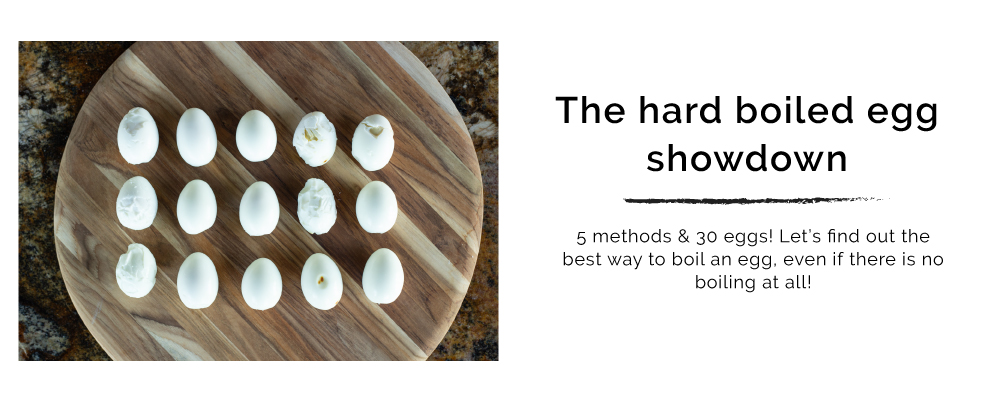
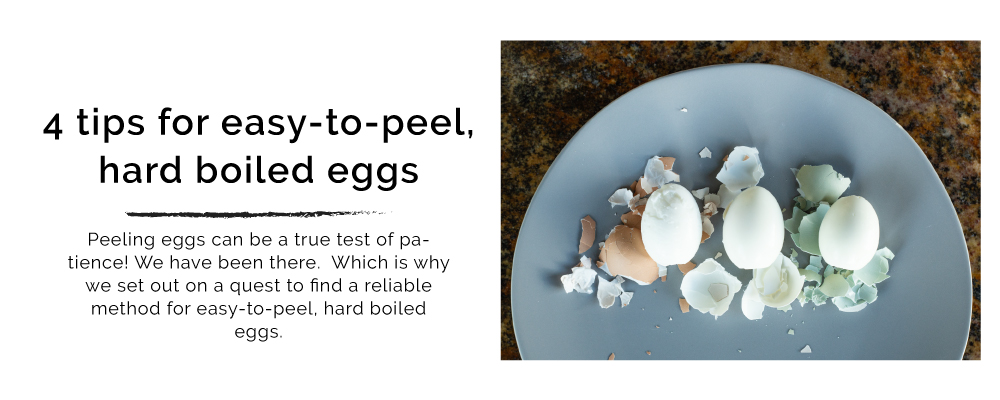
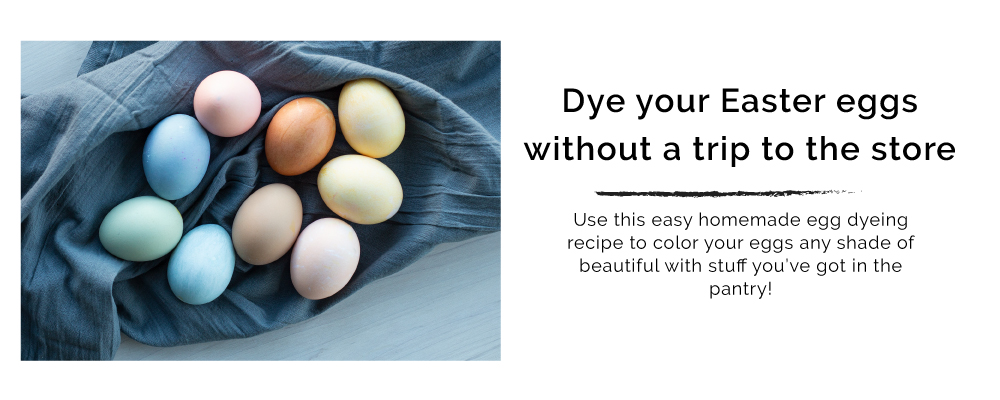

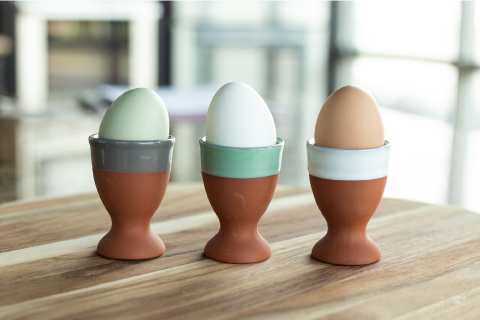
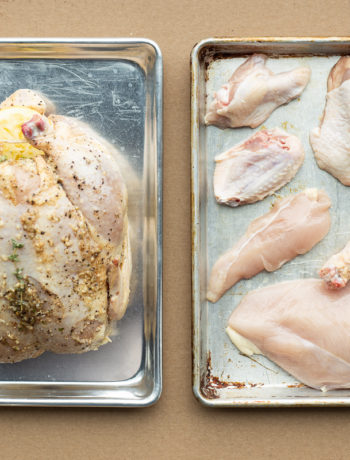
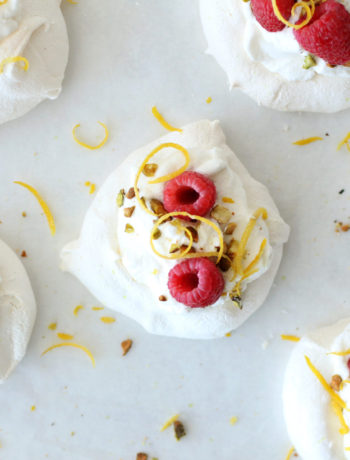
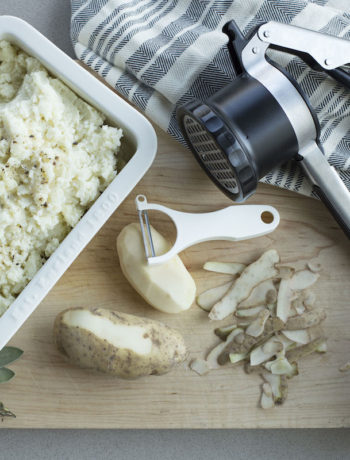
Katherine Bell
April 8, 2020 at 9:32 amWhat method did you use to cook the soft/medium/hard eggs? Just trying to figure out time and technique for the perfect soft-boiled egg.
connie
May 5, 2020 at 3:13 pmHi Katherine,
This blog post has the method we used to cook our soft/medium/hard eggs.https://www.gygiblog.com/blog/2020/04/08/boiling-the-perfect-egg/
Hope this helps!
Allisha
March 24, 2018 at 9:32 amThank you for all the great info
Susan
March 23, 2018 at 4:08 pmWell, no wonder I get varying results when I boil eggs. I’m going to try your method! Thanks.
Jimae kenney
March 23, 2018 at 1:35 pmI learned in school to add salt to the water to aid the membrane separation through osmosis